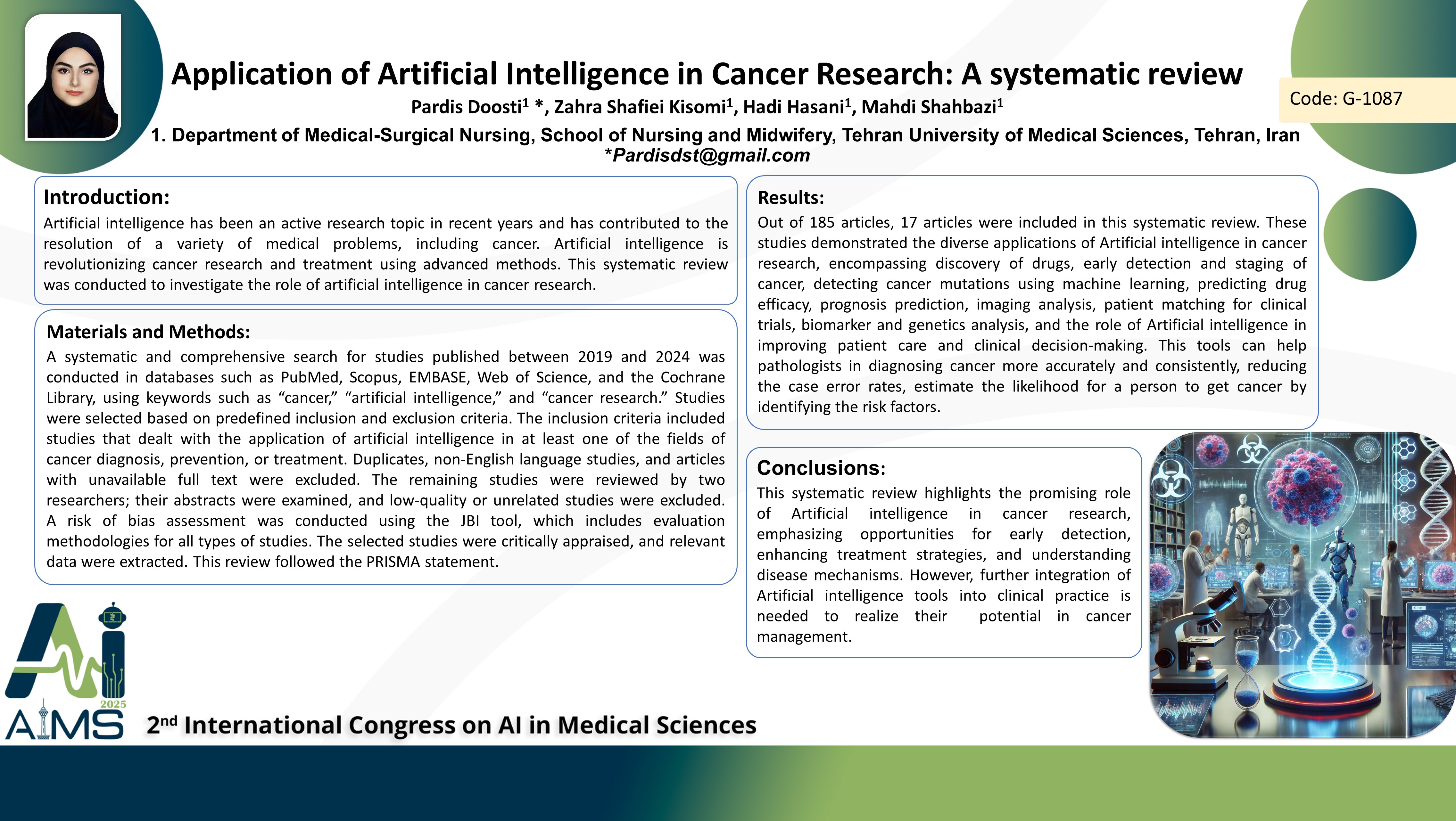Application of Artificial Intelligence in Cancer Research: A systematic review
Code: G-1087
Authors: Pardis Doosti * ℗, Zahra Shafiei Kisomi, Hadi Hasani, Mahdi Shahbazi
Schedule: Not Scheduled!
Tag: Biomedical Signal Processing
Download: Download Poster
Abstract:
Abstract
Background and aims: Artificial intelligence has been an active research topic in recent years and has contributed to the resolution of a variety of medical problems, including cancer. Artificial intelligence is revolutionizing cancer research and treatment using advanced methods. This systematic review was conducted to investigate the role of artificial intelligence in cancer research. Method: A systematic and comprehensive search for studies published between 2019 and 2024 was conducted in databases such as PubMed, Scopus, EMBASE, Web of Science, and the Cochrane Library, using keywords such as “cancer,” “artificial intelligence,” and “cancer research.” Studies were selected based on predefined inclusion and exclusion criteria. The inclusion criteria included studies that dealt with the application of artificial intelligence in at least one of the fields of cancer diagnosis, prevention, or treatment. Duplicates, non-English language studies, and articles with unavailable full text were excluded. The remaining studies were reviewed by two researchers; their abstracts were examined, and low-quality or unrelated studies were excluded. A risk of bias assessment was conducted using the JBI tool, which includes evaluation methodologies for all types of studies. The selected studies were critically appraised, and relevant data were extracted. This review followed the PRISMA statement. Results: Out of 185 articles, 17 articles were included in this systematic review. These studies demonstrated the diverse applications of Artificial intelligence in cancer research, encompassing discovery of drugs, early detection and staging of cancer, detecting cancer mutations using machine learning, predicting drug efficacy, prognosis prediction, imaging analysis, patient matching for clinical trials, biomarker and genetics analysis, and the role of Artificial intelligence in improving patient care and clinical decision-making. This tools can help pathologists in diagnosing cancer more accurately and consistently, reducing the case error rates, estimate the likelihood for a person to get cancer by identifying the risk factors. Conclusion: This systematic review highlights the promising role of Artificial intelligence in cancer research, emphasizing opportunities for early detection, enhancing treatment strategies, and understanding disease mechanisms. However, further integration of Artificial intelligence tools into clinical practice is needed to realize their potential in cancer management.
Keywords
Artificial Intelligence, Oncology, Cancer Research, Medicine
